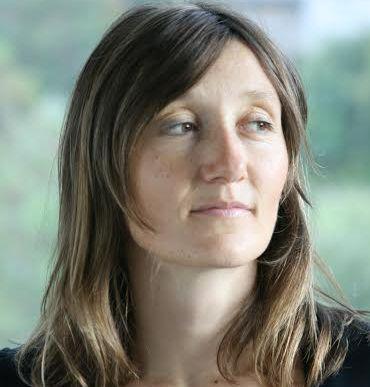

The project is being carried out in seven EU countries. It reveals how populist organisations take control of the new media in order to create hatred. The project raises awareness about the issue by educating people to become media literate and with e-inclusion against violence. The head of the E-inclusion against violence project, Assistant Professor Mojca Pajnik, PhD, from the Peace Institute at the Faculty of Social Sciences in Ljubljana, talked to MMC about the project.
How did you start researching racism and populism in schools?
The project focuses on analyzing populism, the discourses and practices of political parties and movements in seven EU countries. We centered on analyzing "harsh populism", in between racism and nationalism, which practices the exclusion of others and spreading a policy of fear. On the other hand the project also focused on training young people in school to make judgments on cases of populism and encourage action against exclusion and discrimination, with an emphasis on strengthening cooperation and media literacy. The project also educated teachers about the appearance of populism, racism and media education. The testing included youths between the ages of 14 and 19, which means pupils from 9th grade elementary school to first year college students. In Slovenia we conducted tests at three high schools - a total of 111 students.
What are populist organizations and how do they exercise media violence? What is their modus operandi? What did you find out?
Populism relies on people (populus) and its supposed simpleness and self-evidence. We researched populism on the basis of interviews and by analyzing the words and practices of political parties and movements. The results show that populism functions as a persuasion strategy, relying on national sentiment and a leader's authority for winning over the masses, like for example during elections. As an ideology it can often be detected in the form of ethnonationalism, which excludes minority groups. What is specific is that is succeeds to function from an allegedly democratic perspective: for example it urges the expulsion of migrants, Muslims, or »the Erased«, in the name of human rights or by advocating liberal ideals of democracy.
What makes Slovenia different from other countries?
Citizenship education, as a principle of education and school subject which was introduced in Slovenia in the 1980s, has been a great acquisition for our school system. However it is all too often a topic of political debate. As in the past we have to defend that principle today as well. We have to advocate it and work to preserve it. In the political arena citizenship education is often reduced to homeland education. The competence to judge political matters is reduced to stressing the Slovene ethnogenesis, which is a very problematic reduction of the idea itself.
In these political confrontations Slovenia, sadly, doesn't lag behind other EU countries. The protagonists of populist politics are of the opinion that citizenship education "»promotes" rights for LGBT people or migrants. They often say that speech against discrimination is only an indoctrination of the young.
How can young people recognize populism and racism in today's digital media and social networks?
In the case of racism we're not only talking about biological racism, which is relatively easy to identify, but also about cultural racism, which excludes in a more subtle way. Cultural racism is on the crossroad between exclusion based on ethnicity, sex, status, age, faith and so on. Due to the complexity of this phenomenon, education is crucial for young people to be able to identify cases of racism, ask questions about the effects racism, and know how to react in a proper way.
At what age can children and young people recognize racism or populism? And at what age can they become victims?
The movements which follow populist or racist ideologies recruit young people from the age of 15 and above. Schools have to make young people able to critically judge violence, to help them gain competence to know how to stand up against exclusion and discrimination. Young people also have to know and have the possibility to practice anti-racist action.
And the key message?
The appearance of populism and racism, which pervade current mainstream politics on a global level, demands answers from citizens. It is important for schools to include these apolitical processes into its programs. It is important for schools to make young people more competent in judging the processes of exclusion and discrimination.

































































